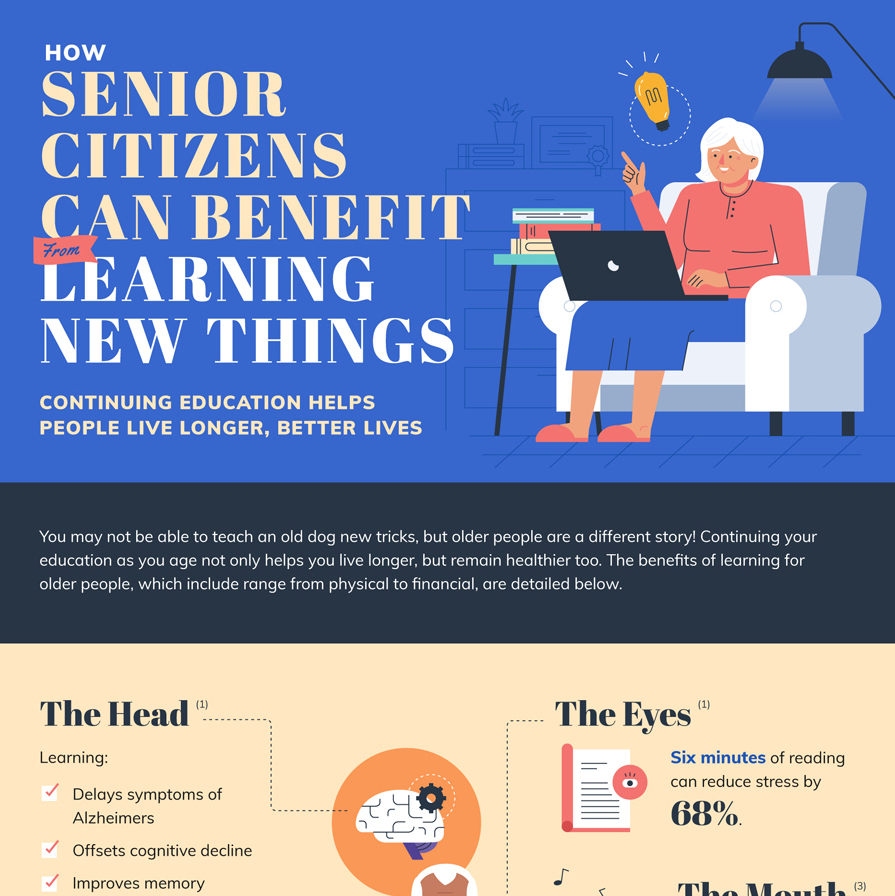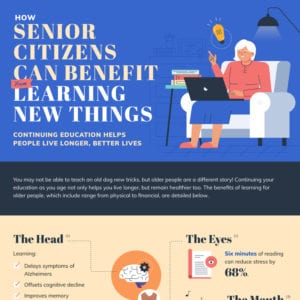How Senior Citizens Can Benefit from Learning New Things

Find your degree
How Senior Citizens Can Benefit from Learning New Things
Continuing Education Helps People Live Longer, Better Lives
You may not be able to teach an old dog new tricks, but older people are a different story! Continuing your education as you age not only helps you live longer but remain healthier too. The benefits of learning for older people, which range from physical to financial, are detailed below.
The Head (1)
Learning:
- Delays symptoms of Alzheimer’s
- Offsets cognitive decline
- Improves memory
1. https://hbr.org/2017/02/lifelong-learning-is-good-for-your-health-your-wallet-and-your-social-life
The Eyes (1)
Six minutes of reading can reduce stress by 68%
1. https://hbr.org/2012/08/for-those-who-want-to-lead-rea
The Nose (2)
Eight years of schooling reduces the number of sick-days by two each year
2. https://www.nber.org/digest/mar07/w12352.html
The Mouth (3)
Adult education improves verbal ability, memory, and fluency
3. https://www.ncbi.nlm.nih.gov/pmc/articles/PMC3159532/
The Internal Organs (2)
Greater education correlates with lower rates of:
- Heart conditions
- Stroke hypertension
- High cholesterol
- Emphysema
- Diabetes
- Asthma attacks
- Ulcers
2. https://www.nber.org/digest/mar07/w12352.html
The Heart (1)
One year of formal education can add half a year to a person’s life span
1. https://hbr.org/2017/02/lifelong-learning-is-good-for-your-health-your-wallet-and-your-social-life
The Hands (4)
Learning a musical instrument improves:
- Memory
- Verbal skills
- Further education
The Whole (5)
To be a lifelong learner is to be part of a community.
73% of adults in the US consider themselves lifelong learners
To learn, adults in the US:
- Read educational material: 58%
- Attend a meeting: 35%
- Attend a conference: 30%
- Take a course: 25%
- Take an online course: 16%
5. https://www.pewresearch.org/internet/2016/03/22/lifelong-learning-and-technology/
Did you know that there are online college degrees for senior citizens that you can pursue from the comfort of your home? Online courses are a convenient way to continue learning and stay engaged in new knowledge throughout your life.
SOURCES


